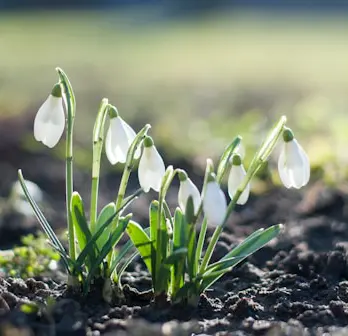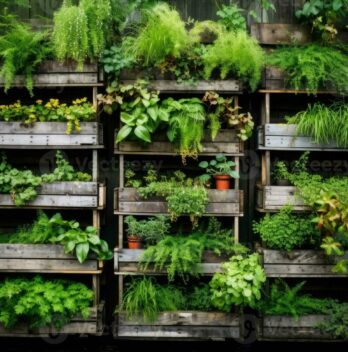Mushroom composting can be a great addition to any gardening routine. While it can be a great
In this article, we will be talking about mushroom compost, the benefits of using it, and where to use it.
What is Mushroom Compost?
Mushroom compost is also referred to as spent mushroom compost since it is obtained from the remains of mushroom farming. It is mainly used as a mulch and
Most gardeners use mushroom compost to improve their
Another type is the spent mushroom compost which is what’s obtained from mushroom farms. They are often sold as conditioners for turfs and lawns where it is used to improve
How to Use Mushroom Compost?
Mushroom compost has versatile applications. For starters, you can easily add it to any
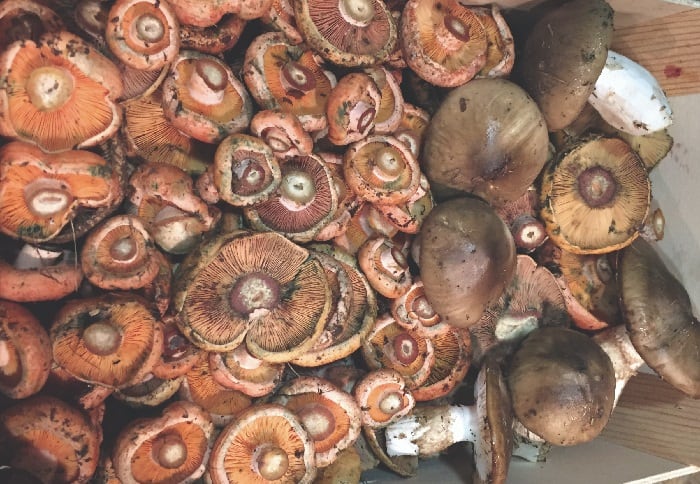
Once you apply mushroom compost to your lawn, there is no need for any additional fertilizer or herbicides for the entire season. To prevent your plant root from burning out, you should apply your mushroom compost close to the roots of your plant for easy nutrient uptake.
You will likely be dealing with weeds when you use compost in your garden, and shouldn’t be worried when you find some on top of your mushroom compost. But when they are properly sterilized before storage, you barely have to worry about weeds.
Mushroom compost can also be used on houseplants, but you must apply only a thin layer on top of the potting
Are there Chemical Residues in Mushroom Compost?
They claim that mushroom compost contains chemical residues from the industries that produce it and that it might not be suitable for use. It is okay to be conscious of what you feed your plants and plant
Most mushroom farmers make use of chemical sprays to tackle the problems of flies and gnats in their facilities. These chemical sprays may get into the mushroom compost making it unfit to be used in certified organic farms. Some of the common chemicals used in mushroom farms to tackle insect problems include methoprene, diazinon, domain, cyromazine, and diflubenzuron. They also apply chemicals such as chlorothalonil, benomyl, and thiabendazole to treat fungal infections in mushroom crops.
When looking to get mushroom compost from farms, is recommended that you enquire about the type of chemicals used in growing the plants. This makes it possible for you to know whether or not the compost will contain toxic materials. The presence of toxic chemicals in your mushroom compost can make it difficult for it to take effect on your plants, or it may have negative effects.
Plants that Do Not like Mushroom Compost
As we mentioned earlier, mushroom compost is not a good fit for acid-loving plants. For these types of plants, you will want to apply acidic compost that has a slightly higher nitrogen content. Mushroom compost can be added to plants with a slightly higher alkaline content. Some examples of plants that do not like mushroom compost include:
- Camellia
- Cranberry
- Viburnum
- Gardenia
- Hydrangea
- Azalea
- Blueberry
- Rhododendron
- Magnolia
- Japanese maple
- Aster
- Fern
- Juniper
- Lupine
- Holly
- Bleeding heart
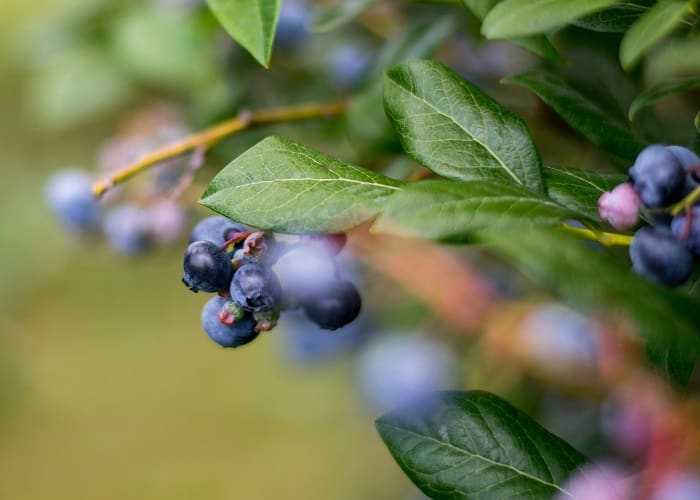
Plants that Like Mushroom Compost
The slow-release mushroom compost can be added to vegetables and plants grown in alkaline
- Yarrow
- Salvias
- Shasta daisy
- Lavender
- Meadow rue
- Reticulated iris
- Hosta
- Goldenrod
- Delphinium
- Easter Lilies
- Foxglove
- Centaurea
- Columbine
- Bearded iris kiwi
- Virginia creeper
- Winter jasmine
- Clematis
- Boston ivy
- Mugo pine
- Horse chestnut
- Ornamental cherry
- Lilac bushes
- Yew bushes
Mushroom Compost Alternatives
There are other alternatives to mushroom compost that you can apply to your garden to improve the
-
- Cow manure
- Kitchen waste compost
- Worm composting
- Mulch
- Poultry manure
- Potting soil
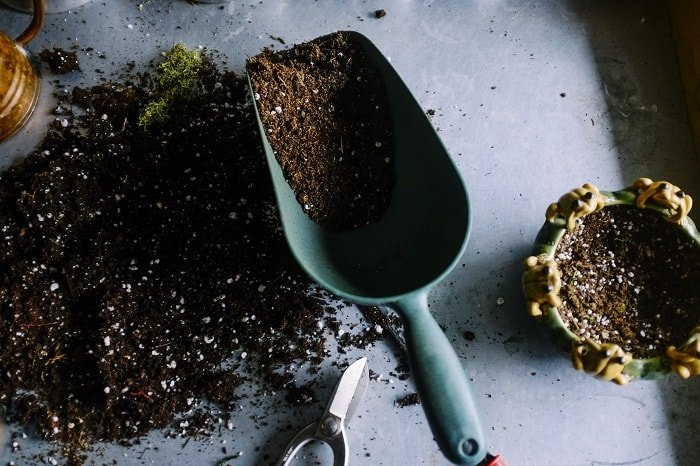
Is Mushroom Soil Good For Potatoes?
While mushroom
However, other types of
What is The pH of Mushroom Soil ?
Mushroom
How Much Nitrogen is in Mushroom Compost?
Mushroom compost has a low nitrogen content of about 1.12%. This is because most of the nitrogen will have been consumed by the mushrooms that were originally grown in it. Most of this nitrogen content is mostly in an organic form which releases slowly and is available to plants over long periods.
While the low nitrogen content of mushroom compost may seem like a disadvantage, it can have its benefits. One of the advantages is that it will discourage the growth of weeds around your plants, giving them a better chance of survival.
What is The pH of Mushroom Compost?
Mushroom compost in its fresh form has a pH of about 6.6. This pH is in the ideal range for most plants.
Is Mushroom Compost Good For Mango Trees?
Mushroom compost is an excellent source of nutrients for trees such as mango trees. It is a good source of nitrogen, phosphorus, and potassium nutrients. It also contains a good amount of calcium which is good for the development of roots and plants.
Is Mushroom Compost Good For Avocado Trees?
Mushroom compost is a good source of organic matter for the long-term health and well-being of a plant such as an avocado. But as already mentioned, it has a low content of nitrogen. To make it suitable for avocado trees, it needs to be mixed with other nutrient-rich soils or the avocado tree will not grow well enough.
Other types of organic matter that complement mushroom compost include cow manure. Mix them and work them into the
Does Lettuce Like Mushroom Compost?
Mushroom compost provides excellent conditions for the growth and productivity of lettuce. Mixing mushroom compost at a ratio of 42 to 48% into the
What Plants Like Mushroom Compost
Mushroom compost is a byproduct of mushroom cultivation. It is made from a mixture of straw, horse manure, and gypsum. You can add mushroom compost as a
Many plants benefit from the addition of mushroom compost to their growing medium. Here are a few examples:
Vegetables: Mushroom compost is perfect for growing vegetables like tomatoes, peppers, and cucumbers. It provides them with the necessary nutrients for healthy growth and fruiting.
Berries: You can add mushroom compost to the
Fruit Trees: Fruit trees like apples and pears will benefit from mushroom compost in their growing medium.
Herbs: Basil, thyme, and rosemary are fond of mushroom compost. Adding it to their
Keep in mind that mushroom compost is typically high in nitrogen and low in potassium and phosphorous. You should mix it with other organic materials to provide the best balance for your plants.
What Is the pH Of Mushroom Compost?
Mushroom compost has a pH that typically ranges from 6.0 to 7.0. This is considered slightly acidic to neutral.
The pH of mushroom compost is influenced by the materials used in its production. Popular materials are straw, horse manure, and gypsum. The pH varies depending on the balance of these ingredients.
It’s best to have the pH of your mushroom compost tested before using it. If the pH is too low or too high, you can amend it by adding lime or sulfur, respectively, to adjust it to the desired range.
Mushroom Compost Benefits
Mushroom compost can benefit your garden in several ways. Here are some of the most significant benefits of mushroom compost:
Improves
Increases Nutrient Availability: Mushroom compost is high in nutrients, including nitrogen, potassium, and phosphorous. These can help promote healthy plant growth.
Adds Microorganisms: Mushroom compost is rich in microorganisms, like bacteria and fungi. These help improve
Disease and Pest Control: The microorganisms in mushroom compost can help control diseases and pests in your garden by suppressing harmful pathogens.
Makes a Great Mulch: Mushroom compost is an excellent mulch that you can add to your garden to retain moisture, suppress weeds, and keep the
Conclusion – Plants that do Not like mushroom compost!
We hope that you enjoyed reading and got valuable information from this article on plants that do not like mushroom compost. You will now be able to use mushroom compost for your plants confidently.
Remember that you cannot use mushroom compost for acid-loving plants. And you should also source your mushroom compost from organic farms that do not use toxic chemicals as insect repellants.
Have you tried mushroom compost before? We will like to hear about your experience in the comment section.
FAQ’s
If you have never used mushroom compost in your garden before, you might be wondering what vegetable plants do not like it. Compost is an organic fertilizer that has been used for hundreds of years to enrich soil and boost plant growth. It can be made from many different sources including kitchen waste, yard waste, leaves and even manure. In fact, composting is a great way to get rid of all those food scraps and household waste that would otherwise end up in a landfill. Compost is often referred to as “black gold” because of its high nutrient value. In addition to being rich in nutrients, compost also provides a safe place for bacteria and fungi to grow. These organisms decompose the organic material in your compost and turn it into humus, which is the most stable form of organic matter. Humus helps your plants absorb nutrients from the soil. By adding mushroom compost to your garden, you are making it easier for your plants to absorb the nutrients they need. There are some vegetables, however, that do not like the smell or taste of compost. If your compost smells bad or tastes bitter, it can cause your plants to have a hard time absorbing the nutrients they need. You can avoid this problem by using an odor neutralizer and adding an ingredient to your compost to mask the bitter taste. You can also choose to use a different composting method, such as the worm composting method. Mushroom compost is a valuable addition to any garden. It’s best to use mushroom compost in the spring or fall when you’re planning to plant a new crop. The mushroom compost has a low nitrogen content and will help the soil warm up and prepare for the new plant. It also contains natural nutrients that help boost the growth of the new crop. There are two types of mushroom compost available, bagged and bulk. I’d recommend using bagged compost because it’s easy to add to your garden and will be ready for use once you’re ready to plant. Bagged compost can be added to your garden once a week, or whenever you want to add it. Bulk compost must be mixed into your soil to be effective. Bagged mushroom compost is available in four different sizes: 1-gal., 2-gal., 4-gal., and 6-gal. Bulk mushroom compost is available in several sizes, but I don’t recommend buying it in bulk. If you purchase bulk mushroom compost, it will be very difficult to mix it into your soil. You may have to mix it with a shovel or by hand. Mushroom compost has a higher nitrogen content than regular compost. Mushroom compost is more efficient in converting organic matter into nutrients for the plants it supports. Mushrooms can also add beneficial enzymes to your compost. Composting with mushrooms can be done right away or you can wait until the mushrooms have fully colonized the compost. There is no hard and fast rule. It will depend on the type of mushrooms you use and the conditions of your bin. If your bin is too hot, or if the mushrooms are not growing as well as you would like, you may want to wait. If you are going to use the compost in your garden within a few months, wait.What vegetable plants do not like mushroom compost?
Is mushroom compost good for all plants?
Is mushroom compost better than regular compost?



